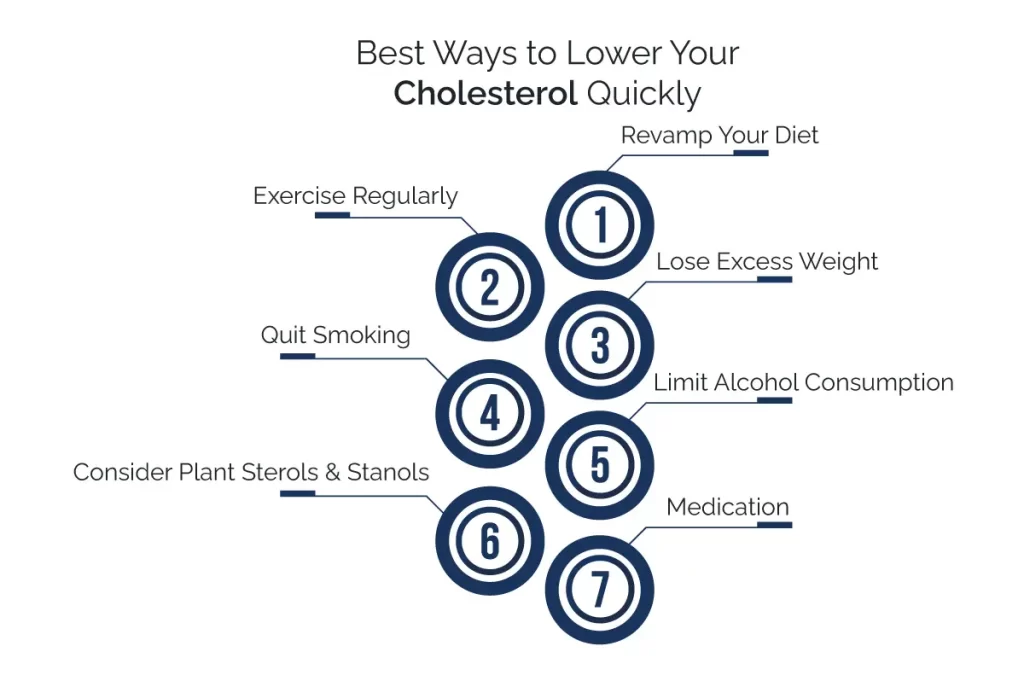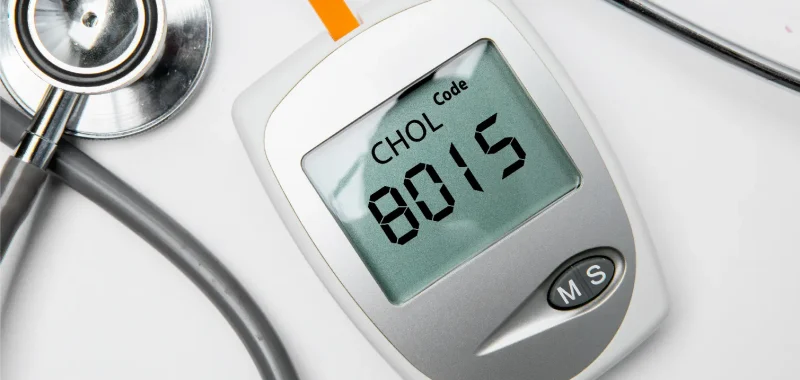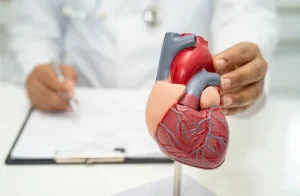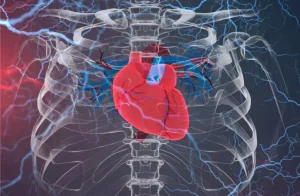Feeling a bit anxious about your cholesterol levels? You’re not alone in this. Surprisingly, 40% of adults are sailing in the same boat, dealing with high cholesterol that could potentially jeopardize their heart health. It’s a prevalent issue, but the good news is that there are effective and fast ways to lower those numbers and boost your health.
In this blog, we’re going to delve into the essentials of cholesterol management—why it’s crucial, how you can make significant changes quickly, and what this means for your overall well-being.
Whether you’ve just discovered your levels are high or have been striving to manage your cholesterol for a while, we are here to assist you with straightforward, practical steps that can lead to noticeable improvements. Let’s roll on this journey together, armed with knowledge and optimism, to transform your health concerns into positive action.
Why Does Your Cholesterol Level Rise?
Understanding why your cholesterol levels may be high is the first step toward gaining control over them. Cholesterol isn’t inherently bad; in fact, it’s a crucial substance that your body needs to build cells and produce certain hormones. However, when the balance tips, and cholesterol levels climb too high, the risks to your health increase significantly. Listed below are some of the culprits behind the elevated cholesterol level.
- Dietary Habits
- Lifestyle Choices
- Genetics
- Age and Hormones
- Other Health Conditions
What Does a Cholesterol Test Measure?
A cholesterol test, often referred to as a lipid panel or lipid profile, is a blood test that measures the amounts of various types of fats in your blood. These measurements can give you and your healthcare provider a clear picture of your heart health and help guide decisions about lifestyle changes or medications to manage your cholesterol levels. Here’s what the test typically includes:
Total Cholesterol: This is the overall amount of cholesterol in your blood, including both low-density lipoprotein (LDL) and high-density lipoprotein (HDL).
LDL Cholesterol (Low-Density Lipoprotein): Often labeled as the “bad” cholesterol, LDL can build up in the walls of your arteries, making them hard and narrow, which increases the risk of heart disease and stroke. The lower the level of LDL cholesterol, the lower your risk.
HDL Cholesterol (High-Density Lipoprotein): Known as the “good” cholesterol, HDL helps remove other forms of cholesterol from your bloodstream. Higher levels of HDL are associated with a lower risk of heart disease.
Triglycerides: These are a type of fat in the blood, and when elevated, can also increase the risk of heart disease. Triglycerides are influenced by diet, and high levels are often seen in people who eat a lot of carbohydrates or fats, as well as in those who are overweight or have diabetes.
How Much Cholesterol Level Is Considered Too High?
When it comes to cholesterol, it’s crucial to understand what levels are considered healthy versus those that could pose a risk to your health. Here’s a breakdown of cholesterol levels and what they mean:
Total Cholesterol
Desirable: Less than 200 mg/dL
Borderline High: 200-239 mg/dL
High: 240 mg/dL and above
High total cholesterol indicates an increased risk of heart disease, but it’s important to consider the components of this total.
LDL Cholesterol (Low-Density Lipoprotein)
Optimal: Less than 100 mg/dL
Near Optimal/Above Optimal: 100-129 mg/dL
Borderline High: 130-159 mg/dL
High: 160-189 mg/dL
Very High: 190 mg/dL and above
LDL is the main target for cholesterol management due to its role in atherosclerosis, the buildup of plaques in artery walls, which can lead to heart attacks and stroke.
HDL Cholesterol (High-Density Lipoprotein)
Poor: Less than 40 mg/dL for men and less than 50 mg/dL for women
Better: 50-59 mg/dL
Best: 60 mg/dL and above
Higher HDL levels are protective against heart disease. Low HDL cholesterol doesn’t clear LDL cholesterol as effectively, which can lead to the worsening of arterial plaque buildup.
Triglycerides
Normal: Less than 150 mg/dL
Borderline High: 150-199 mg/dL
High: 200-499 mg/dL
Very High: 500 mg/dL and above
High triglycerides can also increase the risk of heart disease, especially when combined with low HDL cholesterol or high LDL cholesterol.
How Soon Can You See a Drop in Cholesterol?
When you’re working to lower your cholesterol, one of the most common questions is: “How quickly can I expect to see results?” Many people can start to see noticeable changes in their cholesterol levels within Six to Eight weeks after implementing lifestyle changes such as adjusting their diet or increasing physical activity. Improvements can often be observed within one to two months for those prescribed cholesterol-lowering medications like statins.
7 Best Ways to Lower Your Cholesterol Quickly
Lowering your cholesterol doesn’t have to be a complicated process. By integrating some strategic lifestyle and dietary changes, you can see a significant improvement in your cholesterol levels. Here are seven effective strategies:

1- Revamp Your Diet
Start by overhauling your daily diet. Focus on reducing your intake of saturated fats and trans fats, often found in red meat and processed snacks, and increasing your consumption of foods rich in omega-3 fatty acids and soluble fiber. Foods like salmon, avocados, and oats can help reduce cholesterol absorption into your bloodstream and improve your heart health.
2- Exercise Regularly
Engaging in regular physical activity is crucial. Aim for at least 150 minutes of moderate-intensity exercise per week, such as brisk walking or cycling. Exercise helps boost your body’s HDL (good cholesterol) levels while lowering LDL (bad cholesterol) and triglycerides, which are crucial for maintaining healthy arteries.
3- Lose Excess Weight
Even a modest weight loss can have a substantial impact on your cholesterol levels. Losing as little as 10 to 20 pounds can help lower your LDL cholesterol and raise your HDL cholesterol. Focus on a diet rich in vegetables, fruits, and whole grains to support weight loss and improve your cholesterol.
4- Quit Smoking
Smoking cessation is one of the most potent lifestyle changes for improving your cholesterol profile and overall heart health. Quitting smoking can increase your HDL cholesterol levels and provide numerous other health benefits, including better lung function and reduced risk of heart disease.
5. Limit Alcohol Consumption
Moderate your alcohol intake. While moderate alcohol consumption can potentially lead to higher HDL levels, excessive alcohol use can have the opposite effect, increasing both cholesterol and triglyceride levels, which can harm your heart health.
6. Consider Plant Sterols and Stanols
Incorporate plant sterols and stanols into your diet. These substances, found in fruits, vegetables, nuts, and cereals, can help block the absorption of cholesterol in the intestines. Many products are also fortified with sterols and stanols, such as certain margarines and orange juice, making it easier to include them in your diet.
7. Medication
If lifestyle modifications alone aren’t enough, cholesterol-lowering medications, like statins, might be necessary. These medications can significantly reduce cholesterol levels within a few weeks. Always discuss with your healthcare provider to determine if medications are suitable for your specific condition and how best to integrate them with lifestyle changes.
Bottom Line
Lowering cholesterol quickly is within your reach, and it’s a goal worth pursuing for your heart health and overall well-being. By making dietary changes, incorporating regular exercise, and potentially taking medications under your doctor’s guidance, you can see improvements within a matter of weeks to a few months.
Remember, consistency and commitment are key. This isn’t just about getting the right numbers on your next blood test but about embracing a healthier lifestyle to protect your heart for the long run. Start today, and your future self will thank you for the proactive steps you’re taking now.






